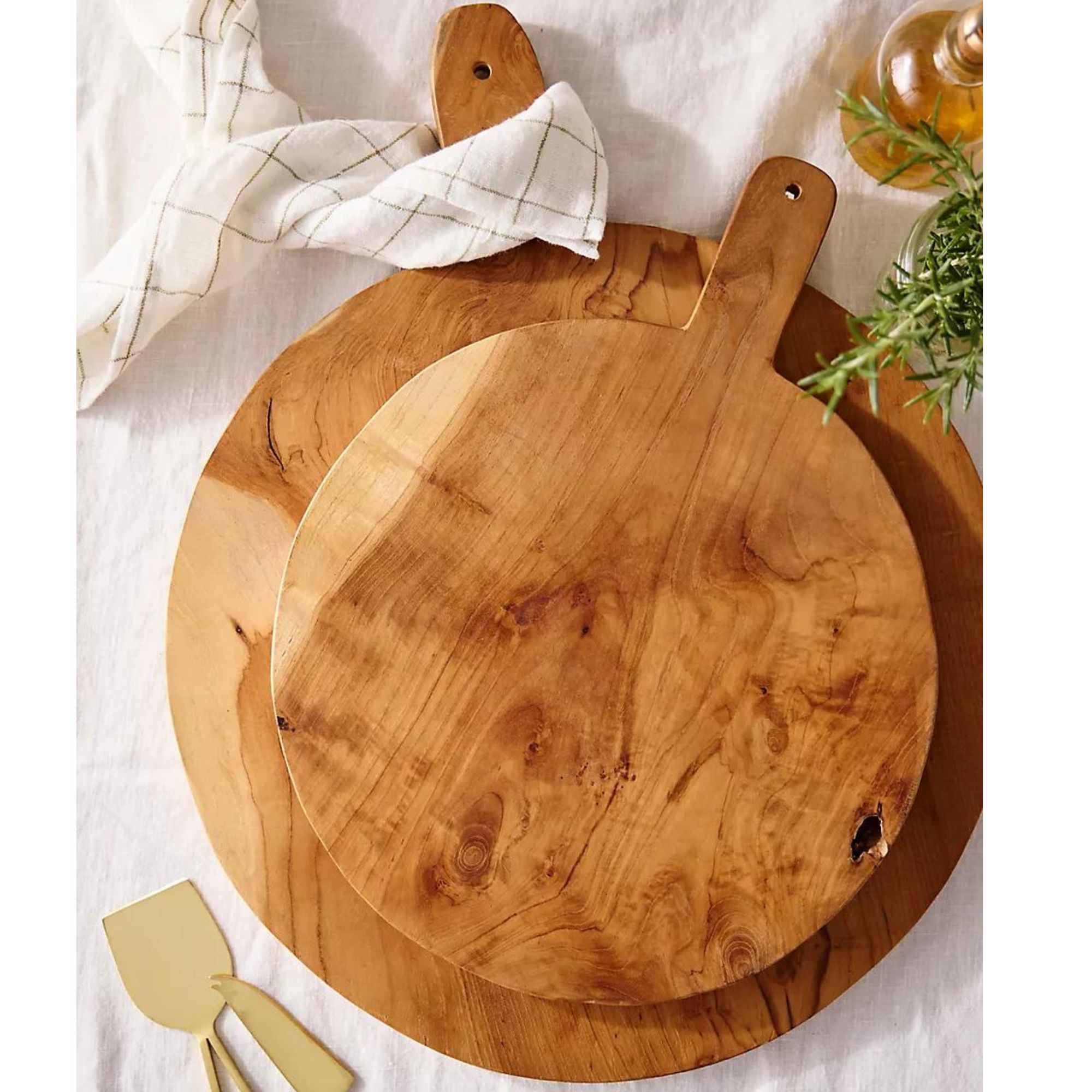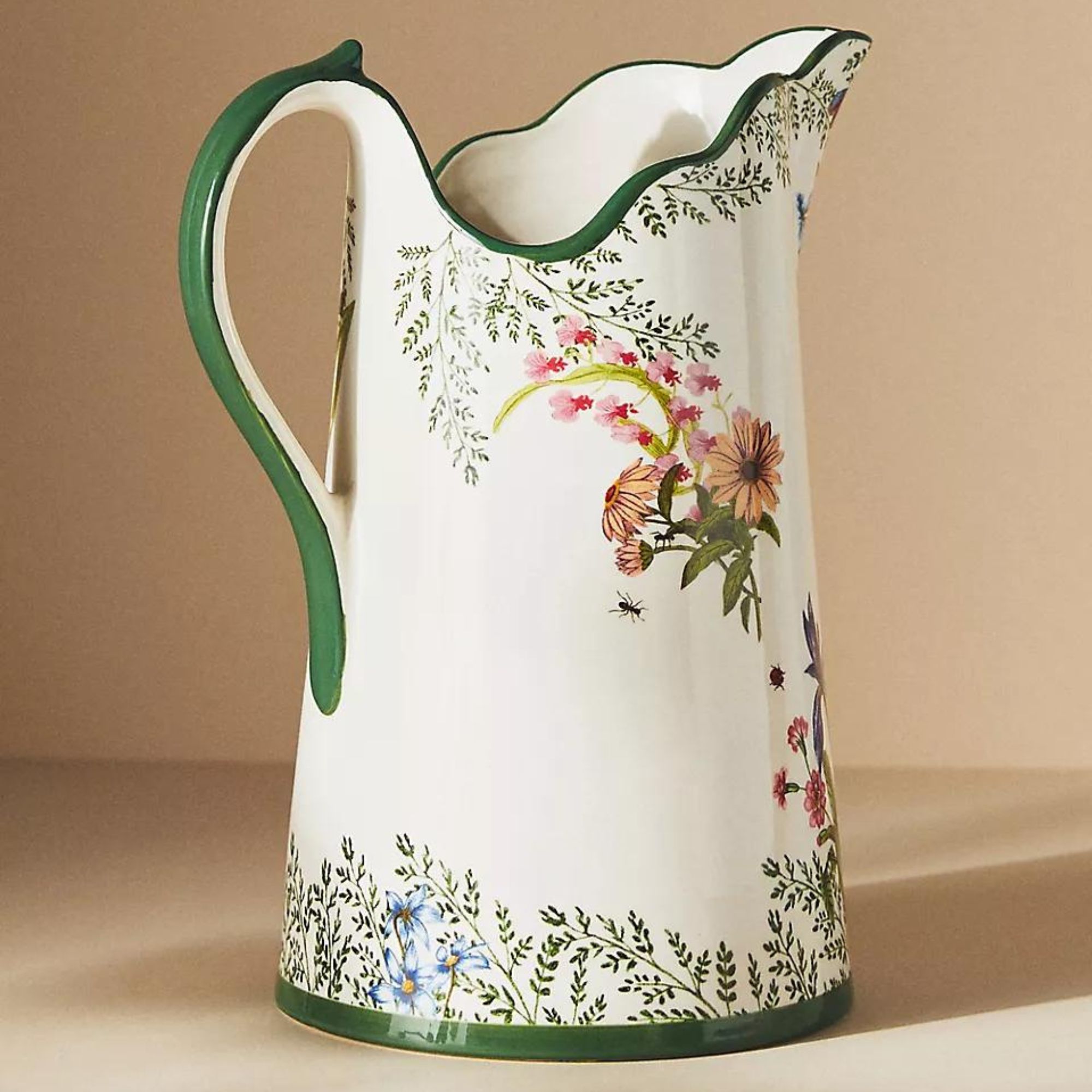Italian kitchen decor is trending – here’s how to infuse this traditional European style into your cooking space
Add traditional charm and lived-in style to your scheme with these Italian kitchen decor ideas
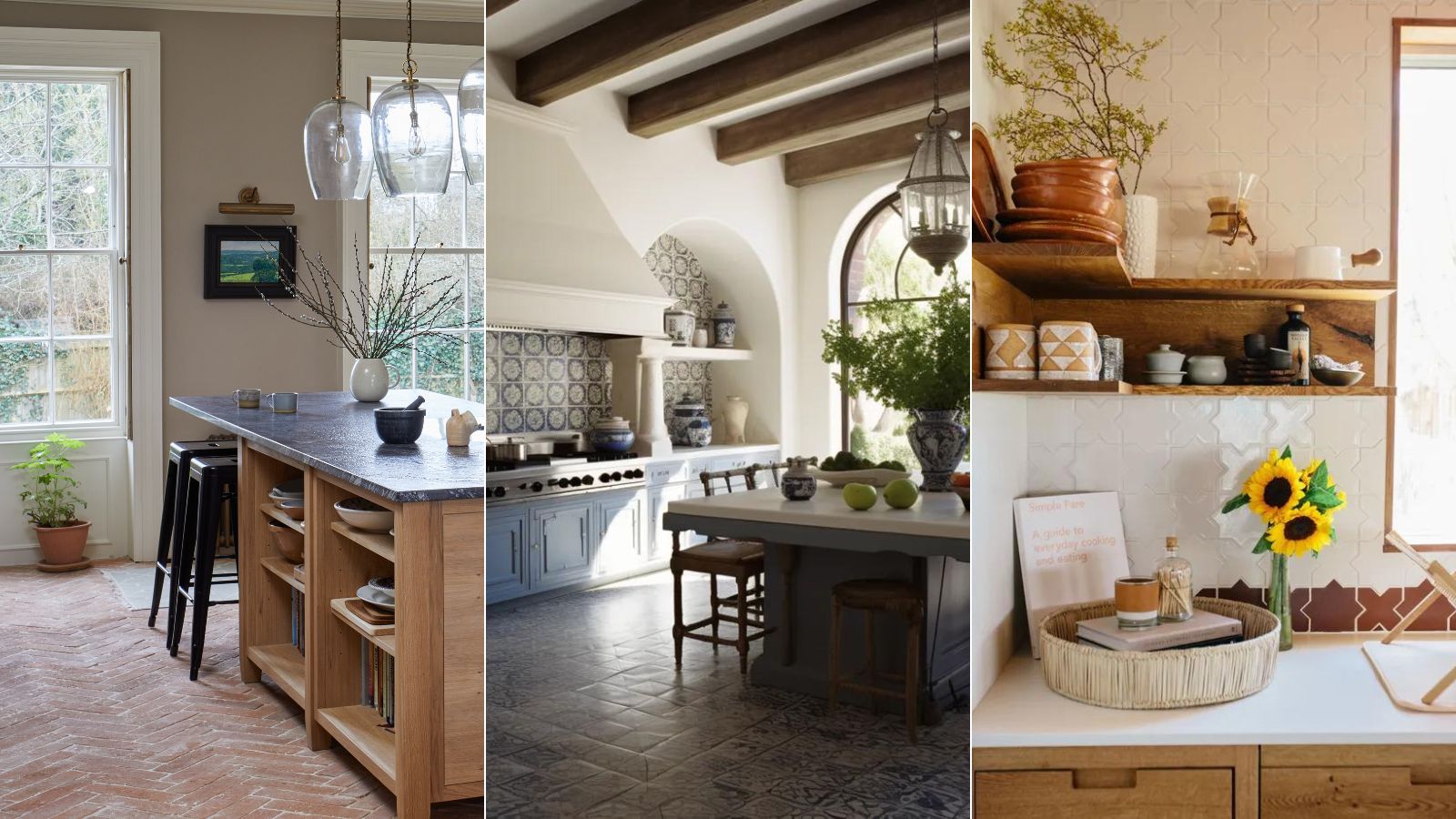

Interior design inspiration comes from all over the world – taking cues from different cultures and architectural styles, it's no wonder designs are so vast and varied. But when it comes to kitchens, there is one location that seems to be the top choice when searching for design ideas.
Particularly during the summer months, Italian kitchen decor rises in popularity, offering a classic style that fills kitchen ideas with character and personality.
And as this year's interior design trends embrace lived-in style, it's no wonder so many of us are looking to these traditional European spaces for inspiration.
If you're looking for simple ways to add Italian style to your space, look no further. These designer-approved kitchen decor ideas will brighten up your space in no time.
5 Italian kitchen decor ideas
Introducing Italian kitchen decor ideas to your space certainly doesn't require a kitchen remodel. Whether you've found yourself enamored by Tuscan kitchens or you can't get enough of Italian decor trends, there's something here to satisfy.
1. Create an authentic backsplash with tile
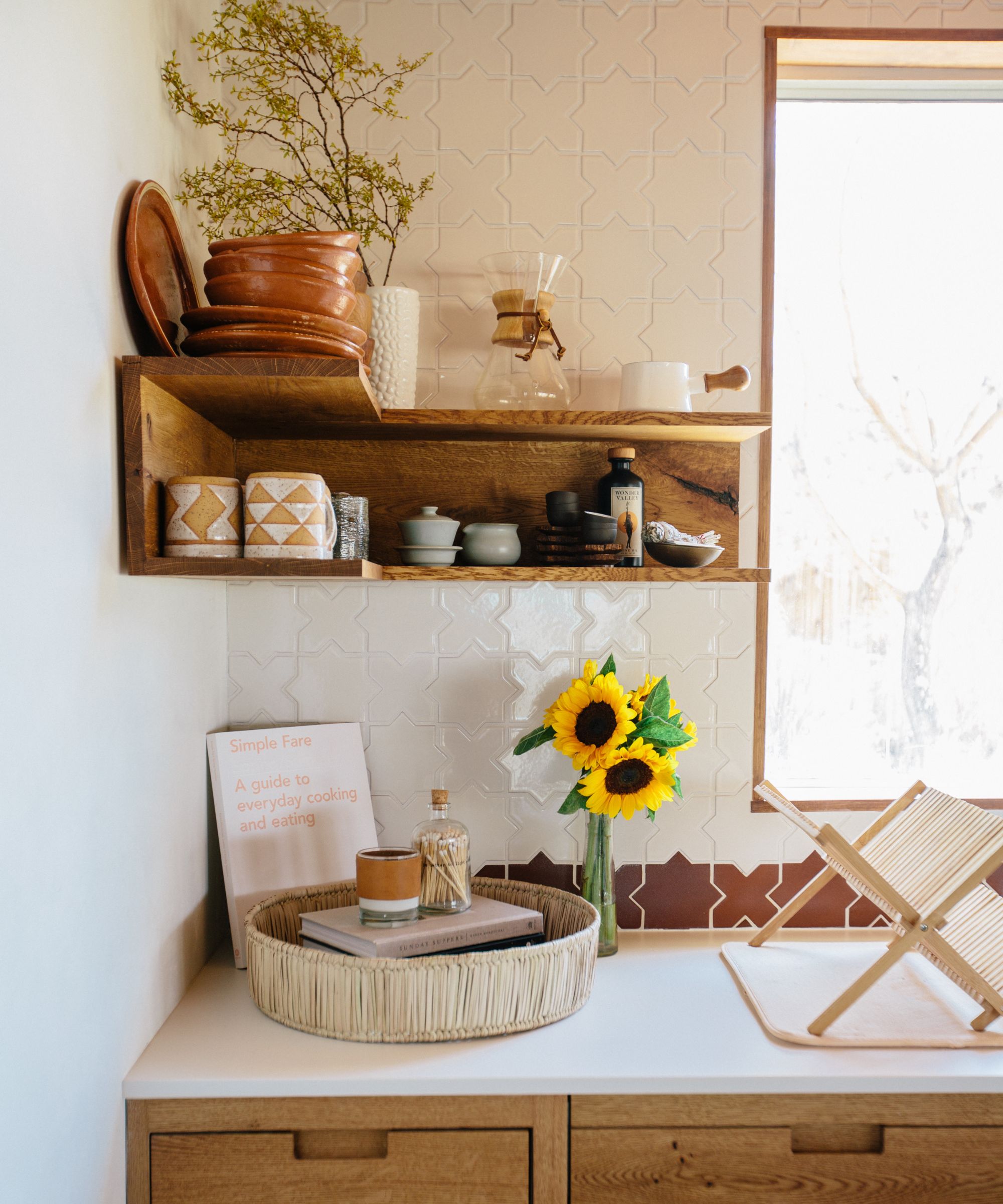
Tiles play a big role in Italian kitchen decor. One easy way to implement them is through a decorative backsplash, bringing in the textures and hues typical of an Italian kitchen scheme.
'For backsplashes, handmade square or subway tiles in a creamy shade beautifully capture old-world Italian style. Hand-painted tile is also perfect for Italian-inspired kitchens, either as an accent behind the stove or a full backsplash,' says Kali Gibson, of Fireclay Tile.
The key is to choose something that feels quite traditional – in this kitchen, star and cross-shaped tiles have been introduced in a cream colorway with a brown border. The color combination feels authentic, and the unique shapes add visual interest.
2. Introduce open shelving
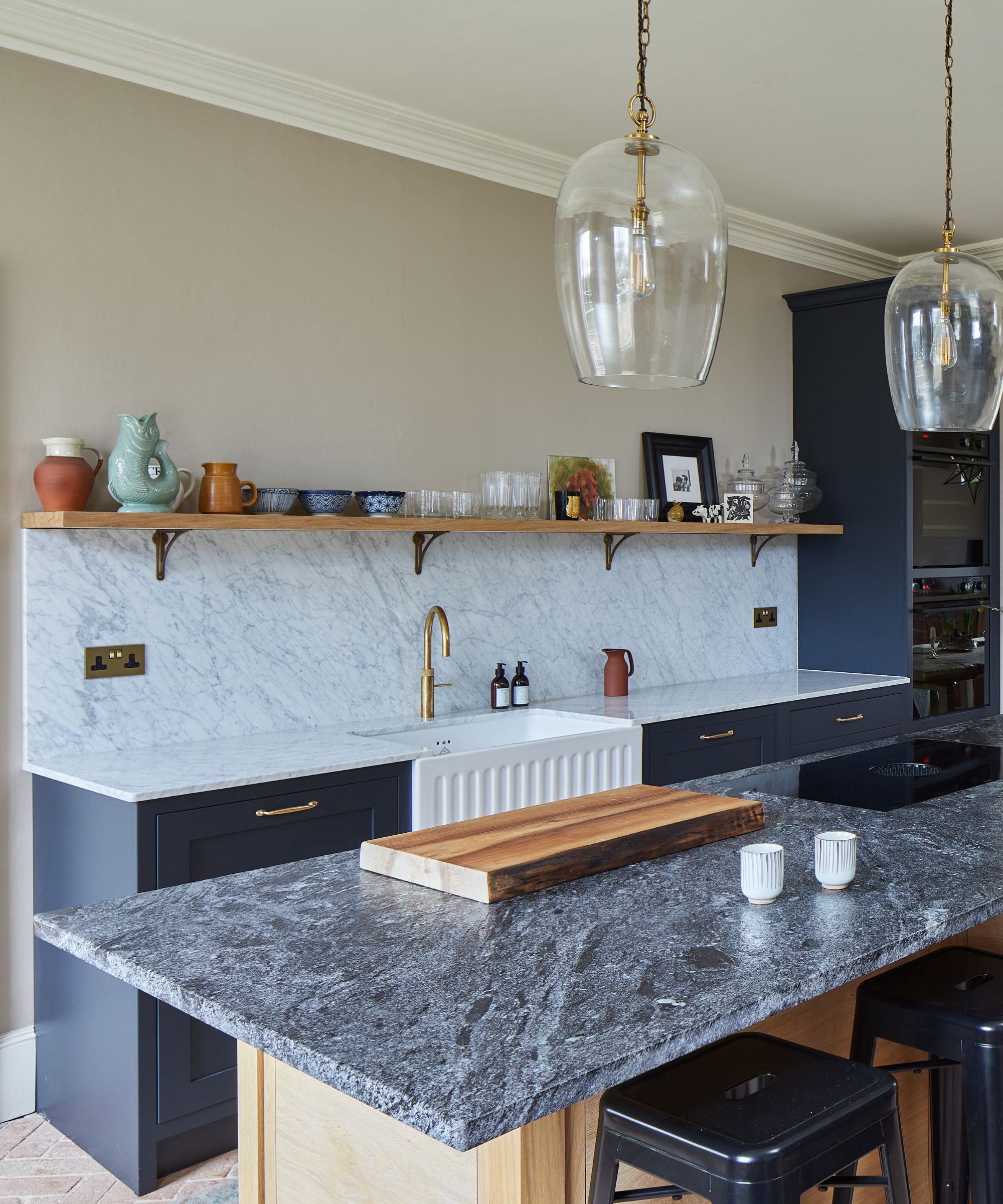
In a traditional Italian kitchen, there would be fewer upper cabinets, if any at all. Instead, open kitchen shelving is a preferred choice, offering easy access to the most-used kitchenware, and creating a decorative element out of functional pieces.
While removing your wall cabinets is probably an impractical choice, adding open shelves somewhere in your kitchen – even if they are just small ones for decor – can instantly add an element of Italian kitchen decor to your space.
Display a mixture of kitchenware such as cutting boards, bowls, and mugs alongside your favorite decor, such as art, ornaments, and collected items. Remember, the less curated you make your shelves, the more authentic and lived-in your space will feel.
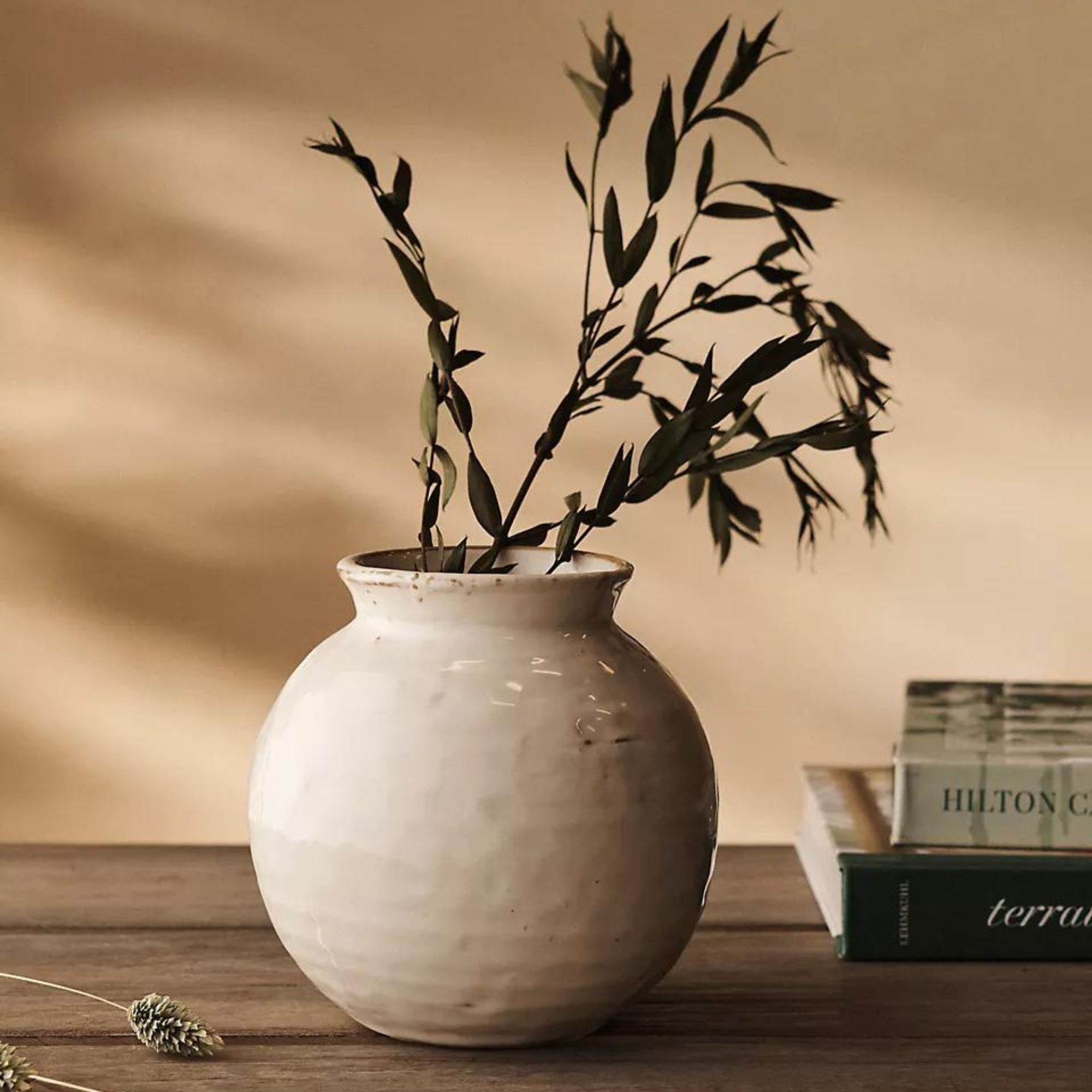
Open shelving in the kitchen is the perfect place to keep a vase. This ceramic design is simple in style but has a vintage feel to it, perfect if you're looking to add Italian kitchen decor to your space.
3. Decorate with warm neutrals and earthy hues
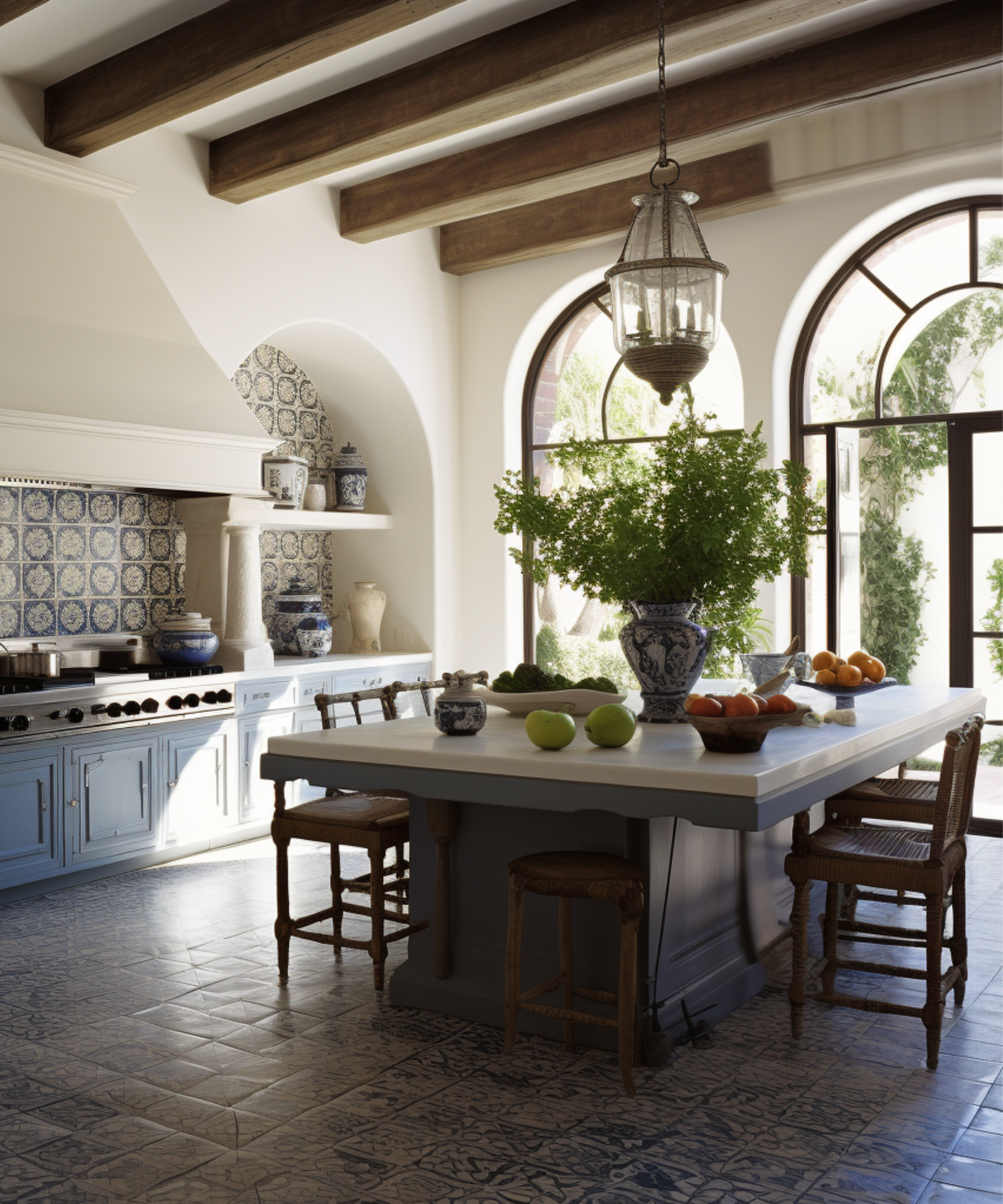
When you think of an Italian kitchen, there's probably a specific color palette that comes to mind. Warm neutrals, earthy hues, and pops of bolder, brighter tones like blue and yellow are instant ways to add Italian kitchen style into your space.
'Italian kitchens are very much the heart of the home – just think about all that delicious cooking – and as such, tend to be places that have a richness and warmth too them that can be reflected in the color choices,' says Grazzie Wilson, head of creative at Ca’ Pietra.
'Warm neutrals are perfect and work well with natural wooden cabinets which is another item you’d expect to see in an Italian kitchen. If you want something a little more dramatic, add in rich yellows for plenty of depth and to add a touch of Italian sunshine,' she suggests.
4. Add terracotta floor tiles
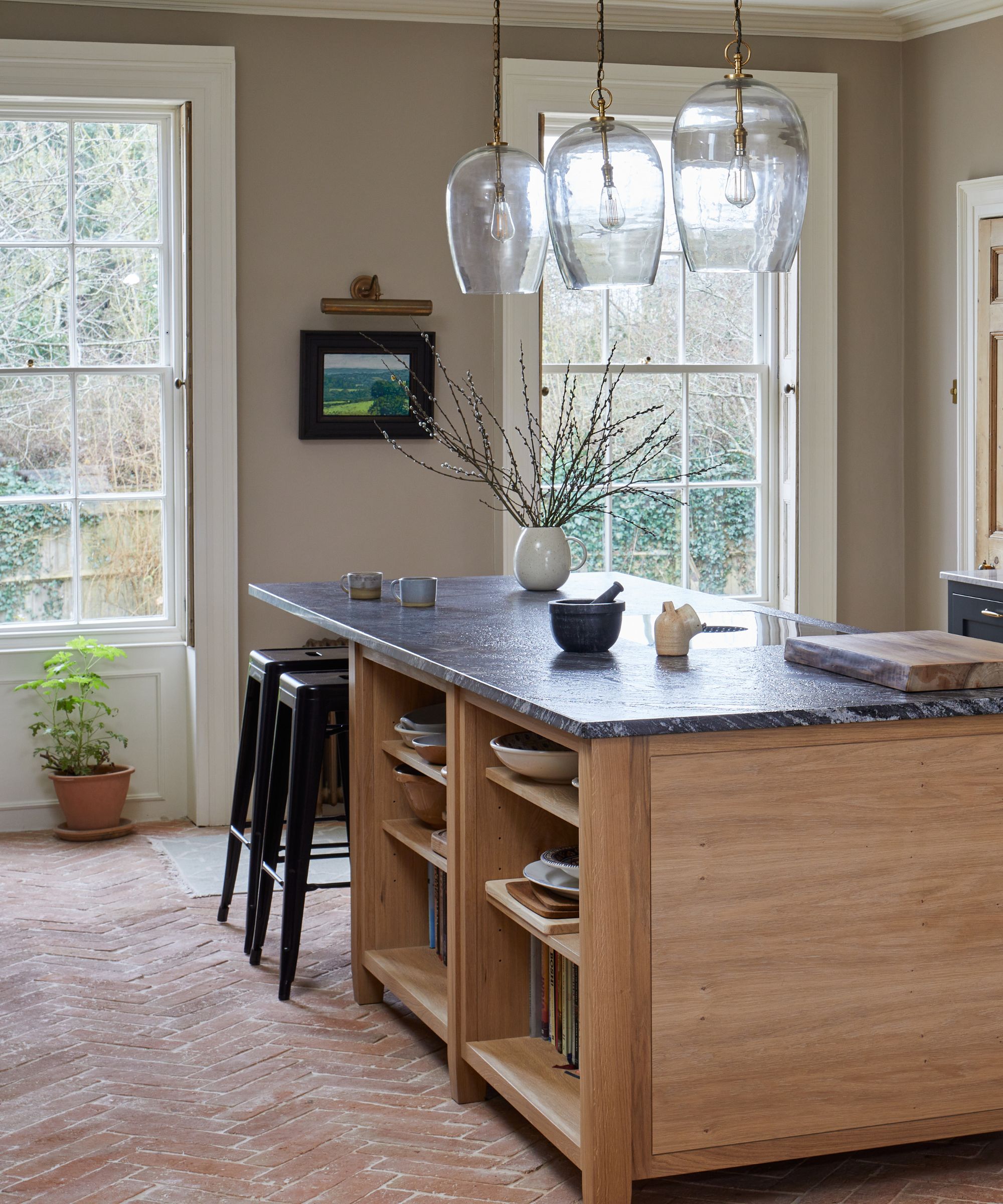
Kitchen flooring ideas are key to Italian kitchen decor. Natural materials are usually a staple – because they look great, wear well, and keep spaces cooler. But not just any tile will make the cut.
'Not only is the color of your paint important but also other items such as tiles which can be another way to add much-needed color,' says Grazzie. Warmer tones are a good fit, and the natural choice would, of course, be terracotta tiles.
'We love the idea of achieving Italian style in the kitchen with warm, earthy tones. A terracotta shade across the floor transforms your space into your own private Tuscan villa,' adds Kali.
5. Decorate the walls with display plates and art
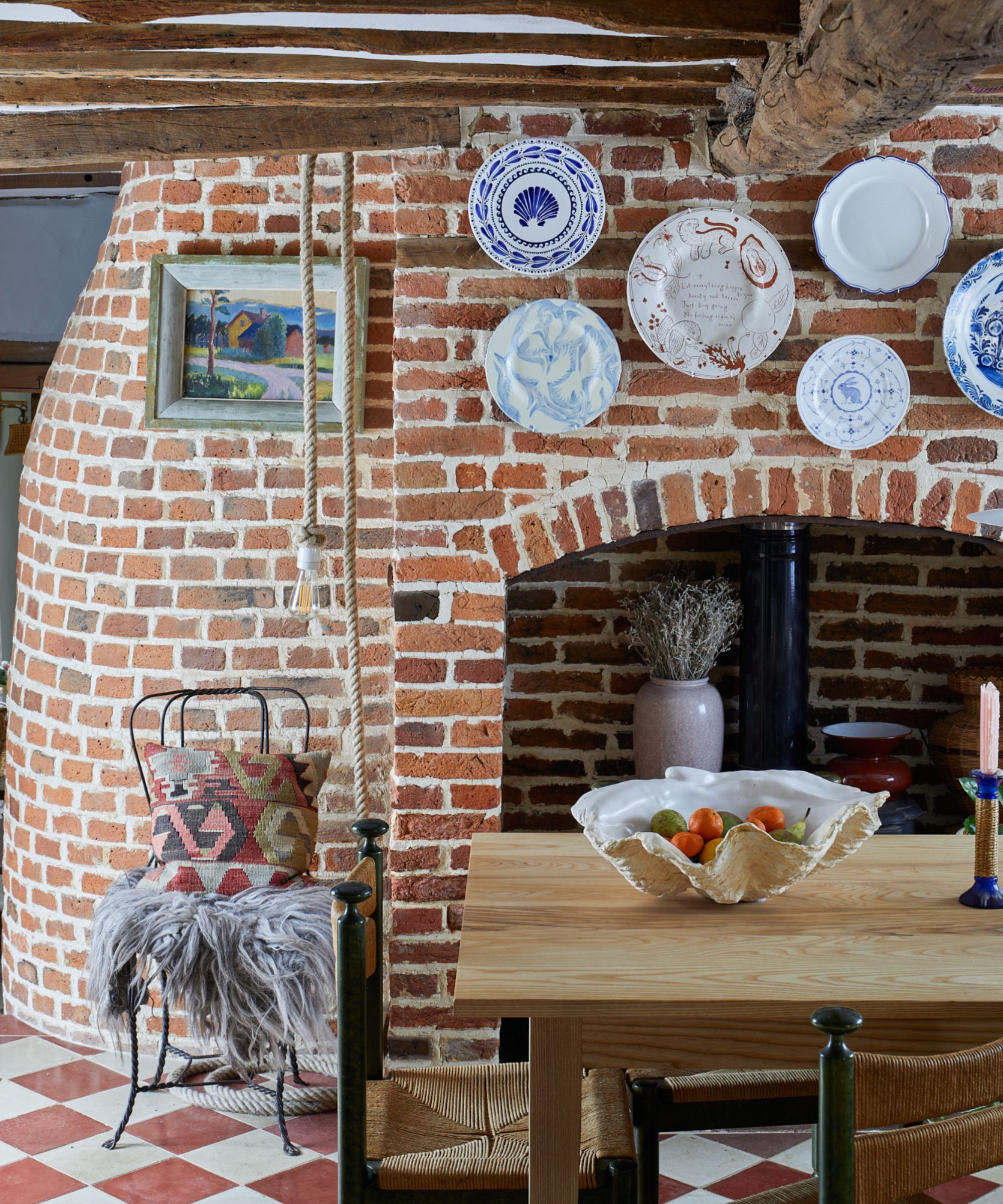
Kitchen walls are an easy place to add a dose of Italian decor, and there are a few staple ways to do it. Keep it somewhat traditional, and introduce a mixture of old and new for an authentic feel.
Display plates are a great option and are a decor style that you often find in Italian kitchens. Group a few together to fill an empty wall, or add a line of decorative plates above a window to draw the eye up.
If plates aren't to your taste, look to vintage-inspired artworks, either depicting still-life subjects or landscapes of the Italian countryside or coastline.
There are plenty of ways to bring Italian kitchen decor into your space. Whether you want to introduce smaller nods to the style with shelving decor and artwork or make bigger changes with paint and flooring, there are plenty of ideas to suit your kitchen.
Sign up to the Homes & Gardens newsletter
Design expertise in your inbox – from inspiring decorating ideas and beautiful celebrity homes to practical gardening advice and shopping round-ups.

I’ve worked in the interiors magazine industry for the past five years and joined Homes & Gardens at the beginning of 2024 as the Kitchens & Bathrooms editor. While I love every part of interior design, kitchens and bathrooms are some of the most exciting to design, conceptualize, and write about. There are so many trends, materials, colors, and playful decor elements to explore and experiment with.
-
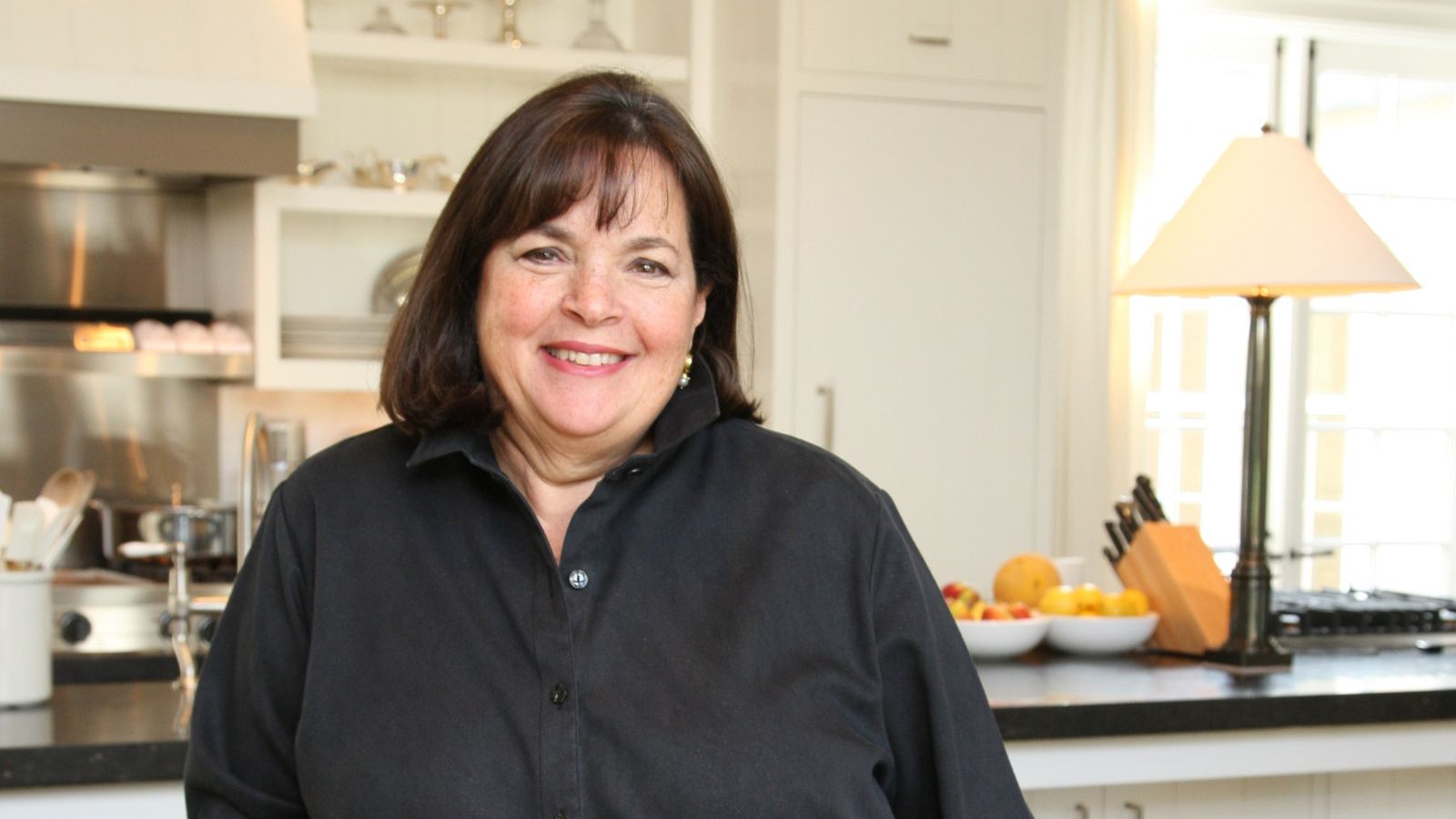 Ina Garten's storage pantry is an insightful window into all of the best cookware used by the chef – and it's easy to recreate on your kitchen shelves from $48
Ina Garten's storage pantry is an insightful window into all of the best cookware used by the chef – and it's easy to recreate on your kitchen shelves from $48The beautiful dishware in The Barefoot Contessa's Hamptons pantry showcases the tools she uses most often to cook – this is exactly how you replicate it
By Sophie Edwards Published
-
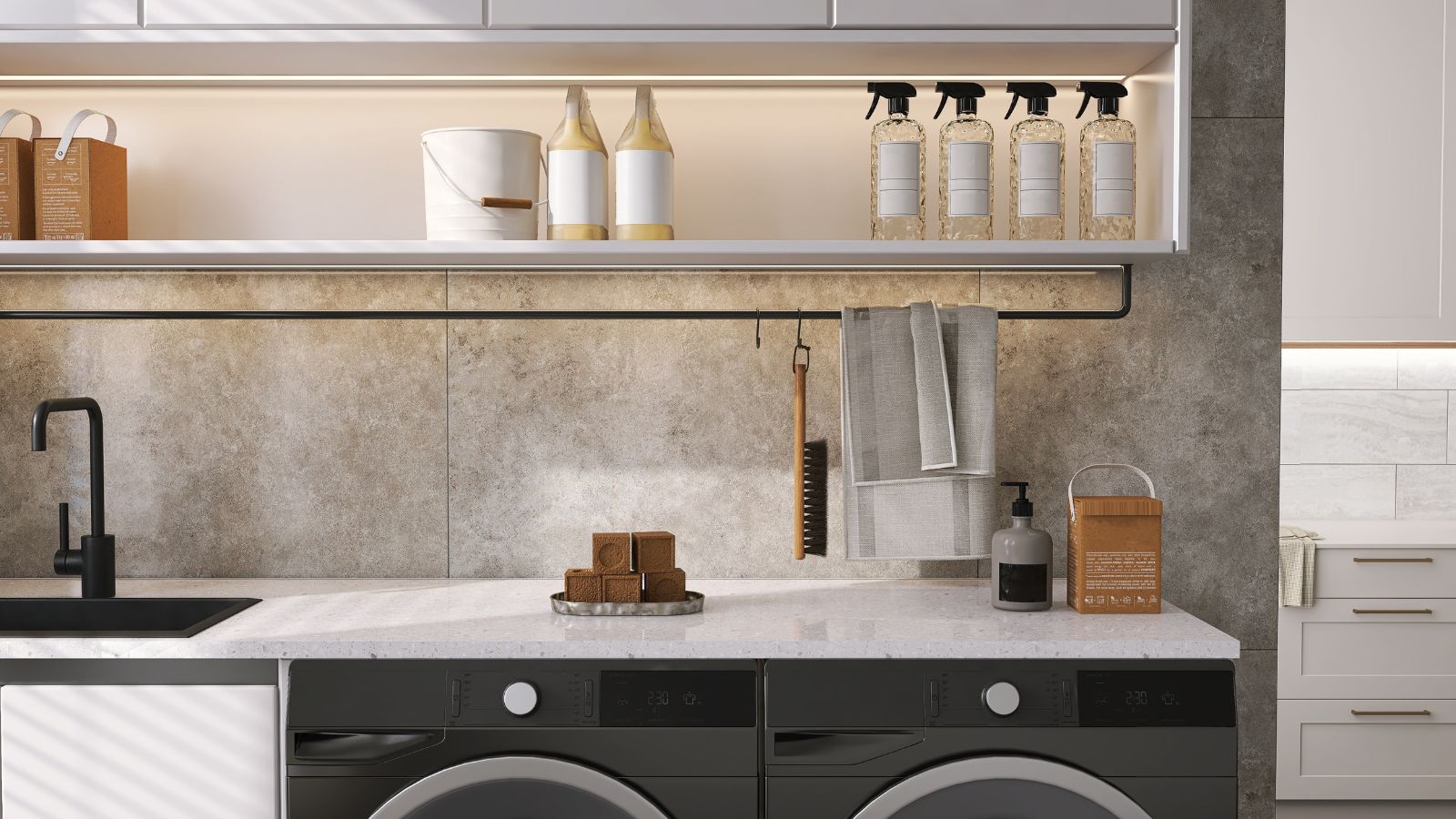 Extend the lifespan of your appliance with 5 simple but crucial washing machine maintenance tips
Extend the lifespan of your appliance with 5 simple but crucial washing machine maintenance tipsFrom cleaning the filters to keeping the door open, experts reveal the washer tips they swear by
By Andy van Terheyden Published
